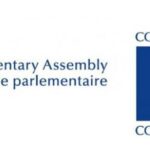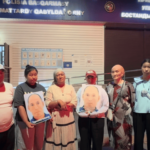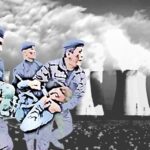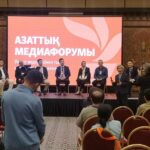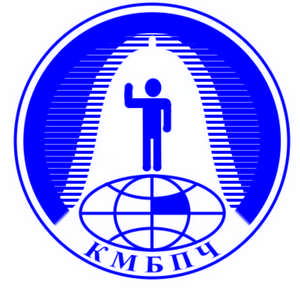The Human Rights Committee today concluded its consideration of the third periodic report of Kazakhstan on how it implements the provisions of the International Covenant on Civil and Political Rights, with Committee Experts commending the State’s abolition of the death penalty, and raising issues concerning excessive use of force by law enforcement officials during demonstrations in January 2022 and internet censorship.
Changrok Soh, Committee Chairperson, and other Committee Experts commended Kazakhstan for its abolition of the death penalty and ratification of the Second Optional Protocol to the Covenant.
A Committee Expert cited reports of excessive use of force during demonstrations in January 2022 that resulted in the deaths of several peaceful protesters. Investigations into these incidents were reportedly insufficient. What measures would the State party take to hold perpetrators to account, and provide adequate remedies to victims and their families?
Another Committee Expert said Kazakhstan had not amended legislation allowing the Prosecutor General to shut down websites without court approval. Provisions designed to protect children from cyberbullying were reportedly misused to censor and restrict information, as were internet blackouts. Could the delegation comment on these issues?
Botagoz Zhaxelekova, Vice-Minister of Justice of Kazakhstan and head of the delegation, said that, as part of national action plans, systemic efforts had been made to enhance human rights protections. These included the ratification of the Second Optional Protocol, aimed at the abolition of the death penalty, without reservations. Kazakhstan was currently working with countries in Central Asia and Mongolia to make the region the first death penalty-free zone.
In the ensuing discussion, the delegation said that the 2022 incident was a mass uprising that led to numerous injuries to law enforcement officials. Investigations had been initiated into the incident, with nine officials sentenced for the excessive use of arms. Monitoring visits had led to the release of around 400 people who were arbitrarily detained.
On internet censorship, the delegation said this year, around 1,000 warning letters were issued to website operators calling for illegal content to be removed. If it was removed, the site was not blocked. Internet services could only be suspended in emergency situations and when there was an extreme threat to public safety, such as during the January 2022 events. The 2023 law on online platforms was based on the European Union’s digital services act. It was geared toward the liberalisation of the online sphere.
Ms. Zhaxelekova, in concluding remarks, thanked the Committee for the constructive dialogue, and all those who had facilitated the dialogue. The Committee’s recommendations would be considered by the State and incorporated into future human rights action plans, she said.
In his concluding remarks, Mr. Soh said the delegation had engaged actively in the dialogue, which had addressed judicial independence, the prohibition of torture, and the rights of vulnerable groups, among other topics. The Committee expressed particular concern regarding the lack of accountability for the January 2022 events and restrictions on civil society and freedom of assembly. It hoped that the dialogue would translate into increased protection of civil and political rights in Kazakhstan.
The delegation of Kazakhstan was made up of representatives of the Ministry of Labour and Social Protection of the Population; Ministry of Culture and Information; Ministry of Education; Ministry of Foreign Affairs; Ministry of Internal Affairs; Ministry of Justice; Court Administration; Anti-Corruption Agency; Prosecutor General’s Office; and the Permanent Mission of Kazakhstan to the United Nations Office at Geneva.
The Human Rights Committee’s one hundred and forty-fourth session is being held from 23 June to 17 July 2025. All the documents relating to the Committee’s work, including reports submitted by States parties, can be found on the session’s webpage. Meeting summary releases can be found here. The webcast of the Committee’s public meetings can be accessed via the UN Web TV webpage.
The Committee will next meet in public at 3 p.m. on Thursday, 26 June to begin its consideration of the initial report of Guinea Bissau (CCPR/C/GNB/1).
Report
The Committee has before it the third periodic report of Kazakhstan (CCPR/C/KAZ/3).
Presentation of the Report
BOTAGOZ ZHAXELEKOVA, Vice-Minister of Justice of Kazakhstan and head of the delegation, said international obligations were an integral part of Kazakhstan’s national legal system. The provisions of the Covenant took precedence over national legislation, and the State’s primary priority was the protection of citizens’ rights.
During the reporting period, the State made far-reaching reforms aiming to consolidate democracy and build a just Kazakhstan. In 2022, constitutional reforms reinforced human rights protections for all Kazakh citizens, moving the State from a super-Presidential form of Government to a Presidential Republic with a strengthened Parliament. The President could now serve only a single seven-year term and could not seek re-election. Rural mayors were now directly elected, and regional authorities had been granted greater autonomy.
The role of the lower house of Parliament in forming the Government had been strengthened – Parliament’s consent was now required for the appointment of the Prime Minister and other members of the Government. The lower house was also empowered to hear reports from the Government, including on human rights issues.
In addition, the registration process for political parties had been simplified; the electoral process had been improved; and the registration threshold had been reduced fourfold, from 20,000 to 5,000 members. For the first time, six political parties, including opposition parties, were represented in the lower house. Nearly half of the members of Parliament had been newly elected, including independent candidates. A 30 per cent quota for women, youth, and persons with disabilities was introduced for the allocation of party list mandates. The Mazhilis (lower house of Parliament) now included 18 women, six persons with disabilities, and eight individuals under the age of 35.
The Constitutional Court had been re-established as a key mechanism for protecting rights and freedoms. All citizens could appeal to it free of charge, and interpretation services were available. To date, the Court had issued over 500 rulings and 71 final decisions. In 20 per cent of reviewed cases, legal provisions were found to be unconstitutional.
Constitutional law had expanded the powers of the Human Rights Commissioner, who could now directly address the President, both chambers of Parliament, and the Government with proposals to improve human rights mechanisms and initiate systemic legislative measures. The Ombudsman was empowered to file lawsuits to defend the rights of an unlimited number of individuals, access all penal institutions freely, interview any person, and intervene in cases of rights violations. Regional Ombudspersons for the rights of children and for socially vulnerable groups had also been appointed across the country.
Extensive work had been carried out in the field of lawmaking. Laws adopted during the reporting period included the law on peaceful assemblies, which introduced a notification-based system for assemblies; a law decriminalising defamation; a law granting citizens and civil society organizations the right to oversee Government and quasi-public entities; a law obliging the Government to respond to petitions that received more than 50,000 signatures; a law expanding journalists’ rights to access and disseminate information; and the Social Code, which guaranteed equality and the inadmissibility of discrimination in all areas of life and increased State social benefits by 15 per cent.
Other laws adopted included a law aimed at protecting victims of domestic violence, which led to the annual number of crimes against women decreasing by 2.5 times; legislation increasing penalties for crimes against the sexual integrity of children; a law granting public monitoring commissions and the national preventive mechanism unrestricted access to all closed facilities in the country without prior notice and establishing criminal liability for cruel and inhuman treatment; and a law on combatting human trafficking.
As a result of preventive measures, the number of registered torture cases had declined each year. In 2024, the number fell by 40 per cent. Since 2020, a Compensation Fund for Victims of Torture had been operating, and over the past five years, more than 3,000 compensation payments had been made.
Kazakhstan was also taking measures to protect its citizens abroad. From 2019 to 2021, the country carried out special operations repatriating 754 individuals from Syria, including 526 children and citizens of neighbouring countries. All children received passports and women were supported to return to a normal life.
As part of national action plans, systemic efforts had been made to enhance human rights protections. A total of 94 actions had been planned, more than 75 per cent of which had already been implemented. These included the ratification of the Second Optional Protocol to the Covenant, aimed at the abolition of the death penalty, without reservations. This commitment was also enshrined in the Constitution. Kazakhstan was currently working with countries in Central Asia and Mongolia to make the region the first death penalty-free zone. In 2023, Kazakhstan also ratified two Optional Protocols: one to the Convention on the Rights of the Child and another to the Convention on the Rights of Persons with Disabilities.
To ensure the effective implementation of decisions and requests from United Nations committees, a working group was established in 2022. It included representatives from the main State authorities. Kazakhstan had responded positively to decisions on individual communications by United Nations committees, including through the payment of compensation in the cases of Gerasimov, Bayramov and Malykhin.
The State party had also incorporated the recommendations of the United Nations High Commissioner Volker Türk, who visited Kazakhstan in 2023, into a comprehensive action plan on human rights and the rule of law. The action plan focused on protecting the rights of women, children, and persons with disabilities; combatting domestic violence; strengthening labour rights; and safeguarding freedom of association.
The Government has been actively engaging with civil society on all major reforms. One notable example of this engagement was the “Dialogue Platform for the Human Dimension” under the Ministry of Foreign Affairs. Since 2013, more than 50 meetings had been held, and their outcomes were reflected in three human rights action plans, including recently adopted laws on combatting human trafficking, the criminalisation of domestic violence, and the fight against torture.
Questions by Committee Experts
A Committee Expert said the Committee welcomed Kazakhstan’s abolition of the death penalty and its ratification of the Second Optional Protocol in 2022, as well as the strengthening of the Constitutional Court in 2023 and the establishment of several mechanisms and institutions. The Committee had, in recent years, issued a substantial number of Views concluding violations of the Covenant by the State party, but had received disturbing information that most of these had not been followed up. Would the State party extend the mandate of the interagency working group, which was tasked with analysing these Views? What measures had been taken to give full effect to the Committee’s recommendations? How were members of the judiciary trained on international procedures?
The adoption of the international treaties act enhanced the role of international treaties in the national legal order. Did the Covenant have direct effect? The Committee welcomed national plans related to human rights. How effective had implementation of these plans been? Domestic courts had assessed a substantial number of cases involving the Covenant. Had these courts directly implemented the Covenant? Was training on the Covenant for the judiciary compulsory? How was the public educated on the Committee’s work?
The Committee welcomed that the Human Rights Commission’s mandate had been expanded but noted that it had “B” status since 2012. Had the State worked to have it accredited with “A” status? What were the obstacles in this regard? How did the State party guarantee a transparent and independent procedure for appointing members of the Commission? How did the Commissioner monitor the implementation of the Covenant? Could the Commissioner be held accountable for inaction? The State party had invested in the national preventive mechanism against torture, but this institution depended on the Human Rights Commission to carry out its operations and reportedly needed to announce visits to places of detention in advance. How would the State party strengthen the mechanism?
Another Committee Expert welcomed the significant changes to the national framework, including the establishment of the national Anti-Corruption Agency. There were concerns about the influence of public officials over this institution. What measures were in place to ensure the independence of the Agency? Media reportedly faced political pressure when reporting on corruption, with some having been imprisoned. What measures were in place to protect media personnel investigating corruption?
The law on countering extremism included a vague definition of “extremism” that allowed for arbitrary interpretation. Would this definition be revised? Were media personnel pressured to expose colleagues’ actions to reduce sentences against them? Did the State party plan to remove people convicted of non-violent crimes from the list of people accused of financing terrorism? Which objective standards were used in courts to define extremist activities? The Committee called for statistics on persons tried for extremist crimes.
The Committee welcomed legal safeguards against surgical sterilisation, but was concerned about uneven access to contraception and high rates of teenage pregnancy. What steps had been taken to expand access to affordable contraceptives and family planning programmes? The Committee was concerned by reports of forced sterilisation and abortion, particularly targeting persons with disabilities, and gender stereotypes embedded in school curricula. What measures were in place to address these issues and develop adequate sexual and reproductive health education?
A Committee Expert said that demonstrations in December 2011 resulted in the deaths and injuries of civilians, and reported torture and other cruel, inhuman or degrading treatment of individuals put under trial related to these protests. Investigations into these incidents and many alleged perpetrators of human rights violations were reportedly insufficient. What measures would the State party take to hold perpetrators to account, and provide adequate remedies to victims and their families? How many investigations had been carried out thus far and what convictions had been handed down?
The Committee welcomed measures taken to address the high suicide rate in detention centres, but this high rate reportedly persisted. What further measures were planned to reduce the suicide rate and to investigate all deaths in custody?
One Committee Expert said that the State party’s laws on discrimination did not address all forms of discrimination included in the Covenant, despite high levels of discrimination against certain groups in the State party. Efforts to revise anti-discrimination laws seemed to have stalled. Was there a plan to revive these?
The Committee welcomed the State party’s efforts to promote the rights of persons with disabilities. Would it remove discriminatory language in its laws related to persons with disabilities?
In 2020, the Dungan community experienced ethnic violence resulting in deaths, injuries, property damage, and the displacement of thousands of community members. Law enforcement authorities reportedly ignored these incidents, delaying investigations and prosecutions. What progress had been made in setting up a reconciliation committee and in providing remedies to victims?
There were credible reports of violence and discrimination targeting lesbian, gay, bisexual, transgender and intersex individuals. Why had organizations of lesbian, gay, bisexual, transgender and intersex persons been denied formal registration and the right to peaceful assembly? The Kazakhstan Union of Parents had submitted a petition seeking to ban “propaganda” related to lesbian, gay, bisexual, transgender and intersex persons. How had the Government responded to this petition? Public funding had been removed from gender reassignment surgery and the minimum age for such procedures had been raised to 21. How would the Government support persons who sought such surgery?
Another Committee Expert welcomed that Kazakhstan’s law prohibited gender-based discrimination, but expressed concern that women accounted for only 27 per cent of the Mazhilis, and had limited representation in decision-making positions in public and private bodies. There was a major salary gap between men and women, and the law did not ensure equal pay for equal work. What measures had the State party taken to ensure substantive equality between men and women and to address discrimination in access to education, land and property rights? How did the State party promote women’s representation in decision-making bodies and managerial roles? What measures were in place to address the gender pay gap?
The Committee welcomed that the State party had financed gender equality initiatives, but noted that the gender equality strategy had been replaced with the gender and family policy. The 2009 law on domestic violence was limited to violence by immediate family members. What legislative and other measures had been taken to combat violence against women and girls? How had the State party tackled the rise in domestic violence observed during the COVID-19 pandemic? How was it addressing issues such as forced and early marriages and ensuring a victim-centred approach to investigations and prosecutions?
Stigma surrounded reporting of cases of domestic and gender-based violence and police were reportedly reluctant to act on such cases. How did the State party encourage reporting of violence by victims, ensure adequate funding for victim support services, and collect data on complaints, investigations and sentences? What measures were in place to strengthen awareness raising campaigns on violence against women targeting public officials and civil society?
Responses by the Delegation
The delegation said the Covenant was directly applicable in Kazakhstan and took precedence over domestic legislation. Over the past eight years, over 7,000 decisions were handed down by the courts that referenced the Covenant. Training seminars on Covenant rights were held for members of the judiciary. The Government had made good progress on the human rights action plan, having implemented around 75 action points thus far, including actions promoting gender equality and women’s representation in decision-making bodies, as well as the investigation of torture.
The Ombudsperson’s status was enshrined in the Constitution. It did not report to Government bodies and had immunity in carrying out its activities. Its financial independence was guaranteed and it had direct access to all Government bodies. In 2023, the Ombudsperson representatives carried out more than 700 monitoring visits and issued over 600 recommendations, some 70 per cent of which were implemented. An assessment of institutional capacity was carried out in 2023 by the Human Rights Commissioner towards its accreditation with “A” status by the Global Alliance of National Human Rights Institutions.
The independent national preventive mechanism consisted of 126 members, a large percentage of whom were representatives of non-governmental organizations. They were elected through a transparent process by the coordination council. The Ombudsperson was working on improving the professional knowledge of the mechanism’s members. Its annual budget was spent exclusively on its needs. It had unlimited access to all detention centres in the country and did not need prior permission to conduct visits.
The Anti-Corruption Agency was independent. It had held several high-level officials accountable for corruption and had seized several millions of dollars in assets from those officials, investing those assets directly in Government programmes such as school construction projects. The Agency provided free consultations with citizens periodically and worked with citizen volunteers who monitored corruption.
The State ensured the safety of journalists who investigated corruption, providing all assistance necessary to those journalists. Journalists had broad rights to receive answers to their questions from public officials and to attend public events.
The concepts of “extremism” and “terrorism” defined in national legislation and the Constitution were in line with those of international law. The State party welcomed the Committee’s recommendations for improving these laws. All inclusions in the list of organizations linked to terrorism financing were based on the sentences of judges. Around 1,000 persons had been removed from the list after review, including persons already serving sentences under the Criminal Code and persons found to have given up extremist views.
Kazakhstan’s Health Code guaranteed the right to reproductive healthcare. Women had the right not to be subjected to forced abortions or sterilisation and had access to all sexual and reproductive health services. Gynaecologists determined whether terminations of pregnancy were necessary. Minors could seek terminations with the written permission of their parents. Family planning and contraception services were provided by the State. Medical, out-patient and in-patient services had been established in rural areas – 308 medical facilities had been built last year. Events were held that promoted reproductive health and aimed to prevent the spread of sexually transmitted diseases and unwanted pregnancies. Increased access to maternal health services had led to a reduction in maternal mortality and the number of abortions.
The Prosecutor’s Office had conducted investigations into the events of December 2011, as had monitoring bodies from the United Nations. The Government had allowed representatives of non-governmental organizations and the media to attend trials related to these events. Some 1,100 witness testimonies were conducted as part of investigations, which led to the sentencing of 13 officials. All persons who had been arrested were now released. Investigations found that there was no evidence of torture and other cruel, inhuman or degrading treatment of arrested persons by public officials. One official had been charged with granting officers permission to use lethal firearms, which led to the death of 12 persons. These victims’ families had been granted damages by the courts.
Discrimination was not allowed on grounds of sex, ethnicity, race, status, property or religion, among other characteristics. The State party had created a committee promoting inter-ethnic harmony, which had developed guidelines on access to legal remedies for victims of discrimination and recommendations for improving legislation on discrimination.
All citizens were equal before the law and no person could be subject to discrimination based on sexual orientation and gender identity. Members of the lesbian, gay, bisexual, transgender and intersex community had access to all fundamental rights. The State party had agreed to conduct research on the impact of propaganda related to lesbian, gay, bisexual, transgender and intersex persons in response to the petition it had received. Sex changes were regulated by domestic law; persons aged 21 or over with legal capacity had the right to change their sex.
Some 87 persons had been convicted for having taking part in mass unrest in 2020 affecting the Dungan community, damaging property and obstructing the actions of the police. All victims had had their property restored.
The law on persons with disabilities granted persons with category two disabilities priority access to public housing. National standards were in place that supported access to infrastructure and services for persons with disabilities. The accessibility level of buildings was mapped by the State party, and more than 124,000 buildings had been adapted to promote accessibility.
In April 2024, a law was adopted that aimed to protect women and girls from violence. There was criminal liability for battery and bodily harm. Police were obliged to investigate all suspected cases of domestic violence, even when there was no report. The punishment for sexual violence had been increased to up to life imprisonment. Forced marriage was punished with up to 10 years imprisonment. Measures were in place to ensure that victims could file complaints. The Government funded a specific unit on combatting domestic violence and provided training to officials on responding to domestic violence. Courts issued restraining orders and instructions relating to behaviour in domestic violence cases as required. Mobile units responded in a timely manner to reports of violence; they had worked with more than 100,000 families.
The share of women in local assemblies was 22.7 per cent. There were three women ministers and eight women vice-ministers, and the Chief Justice of the Constitutional Court was a woman. Some 53 per cent of judges were women. The State party was working actively to ensure that the quota of 30 per cent female candidates was respected.
The ideology of the gender equality strategy had not changed. The State party was working with United Nations agencies to promote gender-sensitive budgeting and establish bodies within ministries with gender-related mandates.
Around 15 per cent of senior public officials were women. Since 2018, some 7,000 women had served in military operations and 15 Kazakh women had served in United Nations peacekeeping roles. Equal pay for equal work for men and women was enshrined in the Constitution. Discrimination on any grounds was not allowed. The Labour Code prohibited discrimination on the grounds of gender. Women who felt they had been discriminated against could turn to the courts to seek remedies.
Follow-Up Questions by Committee Experts
A Committee Expert welcomed that the procedure for follow-up on Views had led to legal changes and the payment of compensation to victims. The Expert also welcomed efforts made by the State party to inform the public about the Committee’s work. Another Committee Expert welcomed measures promoting access to registration for civil society organizations. One Committee Expert commended the participation of 15 Kazakh women in United Nations peacekeeping operations, and the increasing number of women in the Ministry of Foreign Affairs.
CHANGROK SOH, Committee Chairperson, said he was impressed by the abolition of the death penalty and progress in improving the representation of women, but noted that there were still issues that needed to be addressed.
Committee Experts asked follow-up questions on how the State party promoted the independence of the Ombudsperson, despite the President’s role in appointing its members; investigations into individual cases of killings and claims of torture occurring during December 2011 protests and reparations provided to victims’ families, and whether an official public apology had been issued for these human rights violations; whether the State party would formally recognise the right of lesbian, gay, bisexual, transgender and intersex persons to protection from discrimination; details on planned revisions to discrimination legislation; the status of research into propaganda related to lesbian, gay, bisexual, transgender and intersex persons; whether a law on gender-based harassment would be promulgated soon; and resistance to laws on violence against women from conservative segments of society.
Responses by the Delegation
The delegation said the national preventive mechanism carried out more than 500 monitoring visits per year. It had issued more than 16,000 recommendations to institutions as of 2020, of which 44 per cent had been implemented.
An investigation was carried out into events related to December 2011 protests. There was no evidence of the acts of torture that were alleged, preventing judicial investigation of those allegations. The investigations into the murder of 12 individuals and the injury of six determined that arms were used with unlawful intent, inflicting grievous bodily harm, but not necessarily murder. One official had refused to provide medical care to an injured person and was sentenced to five years imprisonment.
Issues related to discrimination legislation and the petition on propaganda related to lesbian, gay, bisexual, transgender and intersex persons would be considered once research into these issues was completed. Civil society was invited to join discussions related to the petition and other Government measures.
National legislation allowed for liability for various forms of harassment. Last year, changes were brought to the Criminal Code banning sexual activity with minors under age 16. The Government was assessing the effectiveness of current legislation on gender-based violence, which would be revised in 2027.
The 2022 constitutional law on the Human Rights Commissioner expanded the powers of the Ombudsperson and the mandate of the Human Rights Commissioner. The findings of the visits of the national preventive mechanism were published in its annual report. As a result of its findings, disciplinary actions had been taken against over 440 officials. In addition to the national preventive mechanism, members of Parliament, judges, prosecutors and the Commissioner for the Rights of the Child could also visit places of detention without prior authorisation.
The Ombudsperson could participate in discussions on national reports for human rights treaty bodies. They had not exercised their right to appeal to the Constitutional Court, as they had been able to address all complaints they had received through other legal recourses. This did not indicate a refusal to exercise this authority.
The Labour Code prohibited discrimination against women and regulated workers’ rights to respect and dignity. Employers were obliged to ensure safe and healthy working conditions. Workers could submit complaints of workplace harassment to the Workplace Ethics Committee or to the police.
There were 170 suicides in prisons between 2017 and 2024. For each case, an investigation was carried out to determine the causes, and around 150 officials had been sanctioned for not fulfilling their care duties. Training was provided to prison guards on identifying at-risk inmates and preventing suicides, and to prisoners on promoting self-confidence and preparing for release. Several additional measures had been implemented in prisons to prevent suicides.
Questions by Committee Experts
A Committee Expert said the State party did not have a specific law on the use of force and firearms by officials. Did it plan to enact such a law that was in line with international standards? There were allegations of excessive use of force during January 2022 protests, which had led to the death of several peaceful protesters. Did the State party plan to conduct thorough, independent investigations into these allegations, hold perpetrators to account, and provide adequate remedies for victims? The mass detention of protesters reportedly led to disappearances, and detainees had been denied access to lawyers and medical care. What further steps would the State party take to ensure that all detainees were informed of their rights, provided access to a lawyer and medical treatment, and to investigate all allegations of mistreatment of detainees and hold those responsible accountable?
Peaceful assemblies held without advanced authorisation were typically dispersed by authorities, with demonstrators arrested. How would the State party bring its administrative detention practices in line with international standards? Courts had a high rate of extending pre-trial detention. How did the State party ensure that pre-trial detention was used only as a last resort, and in line with international standards?
Another Committee Expert said that the State party had not sufficiently responded to the Committee’s previous recommendation to align legal definitions of torture with those of the Convention against Torture. Despite the high number of torture cases, few effective punishments were imposed on perpetrators, and some persons who reported torture were punished for the crime of reporting false information. What steps had been taken to bring the definition of torture in the Criminal Code in line with international standards and ensure timely investigations? How many complaints of torture had been filed, legal proceedings launched, and officials punished?
Kazakhstan had not amended legislation allowing the Prosecutor General to shut down websites without court approval. Provisions designed to protect children from cyberbullying were reportedly misused to censor and restrict information, as were internet blackouts. Could the delegation comment on these issues? Laws adopted in 2023 and 2024 expanded State control over free speech, resulting in politically motivated trials against journalists and political opposition figures. What steps had been taken to fully decriminalise defamation? Could the State party provide statistics on detentions of journalists and human rights defenders? What had the working group on the protection of human rights defenders achieved?
A Committee Expert commended steps to transfer prison health services from the Ministry of Internal Affairs to the Ministry of Health. How was the State party supporting drug-dependent inmates and working to ensure the availability of sufficient medical equipment in prisons? Were medical staff trained in detecting torture? Military schools were excluded from the mandate of the national preventive mechanism. Did the State party intend to address this?
The Committee was concerned that the right to conscientious objection to military services was not defined in law. Were there plans to define this in law and establish an alternative to military service? What steps had been taken to revise religious law to ensure full compliance with the Covenant? The Committee was concerned by reports that some individuals had been imprisoned for engaging in non-violent religious expression. How did the State party ensure that persons were not detained solely for expressing religious beliefs?
What steps had been taken to remove complex registration requirements for non-governmental organizations and trade unions, and to prevent excessive State control of the activities of those organizations?
Minorities continued to face discrimination and limited access to decision-making positions. What was the legal and administrative framework covering political parties? What steps had been taken to promote the effective participation of members of the Roma community in political life?
One Committee Expert commended the State party for the 2024 law on combatting trafficking in persons and the amendment to article 128 of the Criminal Code. How did the State party ensure the effective implementation of these reforms? There were reports of a lack of training for labour inspectors on trafficking. How were inspectors trained to detect trafficking? How did the State party ensure that the cases of all potential trafficking victims were assessed before deportation, and that all migrant children were properly registered and documented? The Committee welcomed efforts to enhance trafficking penalties, but was concerned that trafficking offences were often not appropriately classified, leading to lower penalties. Would this be addressed?
There was no de facto procedure for processing asylum applications and authorities were reportedly reluctant to grant asylum to persons of Russian or Uzbek nationality. Reportedly, migrants had been detained without being given access to legal representation. Was the State party addressing these issues? How did it ensure protection against refoulement? Individuals were required to renounce their citizenship to apply for Kazakh nationality. Would the State revise this law to prevent the risk of statelessness?
What State services were provided to victims of domestic violence, including children? Could children obtain these services independently of their parents? The Committee was concerned that the State party had not prohibited all forms of corporal punishment. Would this be done? Could children file complaints of mistreatment with the Human Rights Commissioner? Workers at an orphanage had been caught on video beating children. How was the State party working to prevent such abuse and promoting the foster family system? Children born outside of medical institutions to undocumented parents did not receive birth certificates. Would the State party address this issue?
Another Committee Expert asked how the State party guaranteed the independence of Supreme Court judge candidates, who were nominated by the President, and of lawyers? There were reports of corruption throughout the judicial system. How was the State fighting this? Had any judicial officials been found guilty of corruption? Attorneys were not automatically appointed to suspects, and did not always get access to all case files. How would this be addressed? How were suspects made aware of their rights? How did the State party prevent cases being unduly declared “secret”? What percentage of court cases were now solely held online? How did the State ensure proper proceedings in online cases?
To what extent were spontaneous assemblies possible in Kazakhstan? How did the State party ensure that notification procedures did not create delays or restrictions preventing assemblies? Could people appeal restrictions on assemblies? Foreigners were prohibited from participating in assemblies. How did the State party ensure that foreigners’ assembly rights were respected?
Responses by the Delegation
The delegation said that in cases of mass violence, the State had the authority to use force to ensure public security. The 2022 incident was a mass uprising that led to numerous injuries to law enforcement officials. Investigations had been initiated into the incident, with nine officials sentenced for the excessive use of arms. Changing the law on the excessive use of force was unnecessary, as the law functioned effectively. All persons affected by violence related to this incident were provided with appropriate medical assistance, including detainees. Monitoring visits had led to the release of around 400 people who were arbitrarily detained. There were 29 minors who had been detained after carrying out serious offences; they had since been released.
There were 1,500 peaceful assemblies organised legally between 2017 and 2024. Some 400 planned demonstrations had been cancelled because authorities had responded to complaints before the demonstration was held. Some 1,000 demonstrations held during the reporting period were deemed unlawful as protesters had failed to respect notification deadlines or to correctly submit notification documents. The State party continued to inform the public about notification procedures; this had led to a two-fold decrease in the number of illegal assemblies between 2022 and 2024. Organisers of such assemblies were brought to court only in exceptional circumstances; in most cases, they were issued fines or warnings. Law enforcement bodies needed to provide alternative proposals if the location for a planned demonstration was already being used by another event.
As of 2019, exemption from liability for torture was not possible in Kazakhstan, nor were suspended sentences for perpetrators of torture. There were 40,000 video cameras placed in detention centres to prevent torture. There had been a downward trend in the number of torture cases reported, from around 800 in 2019 to around 100 in 2024. More than 200 officials had been convicted of torture offences, and no officials found guilty of torture had received amnesties. Housing and compensation payments were provided to the families of victims of torture. The State party intended to increase the amount of compensation provided to victims of torture ten-fold.
This year, around 1,000 warning letters were issued to website operators calling for illegal content to be removed. If it was removed, the site was not blocked. Internet services could only be suspended in emergency situations and when there was an extreme threat to public safety, such as during the January 2022 events. The 2023 law on online platforms was based on the European Union’s digital services act. It was geared toward the liberalisation of the online sphere.
Defamation had been downgraded to an administrative offence. There had been a downward trend in the number of cases of defamation in recent years. In 2024, only four cases of spreading misinformation were registered. Journalists and activists were not prosecuted for defaming public officials. Persons could not be charged for defaming public or private institutions.
All persons who entered prisons were provided with a medical assessment. Detainees requiring specialised assistance were brought to outpatient clinics, and they were isolated when they showed symptoms of contagious diseases. Legal amendments were made to allow detainees with serious diseases to serve their sentences in appropriate facilities or to have their sentences commuted.
Over the past few years, there had been an increase in religious practitioners and missionaries, and a decrease in the number of people fined for religious activities. In the first quarter of this year, only 46 people had been fined. Kazakhstan recognised the right to practice and disseminate religion. Only persons who practiced religion for financial or extremist purposes were sanctioned. Legislation on religion was in line with the Covenant. Members of religious institutions could be released from the obligation to carry out military service.
Kazakhstan was a multi-ethnic State. It had a special quota for members of the Senate who were representatives of different ethnic groups. There were no limitations on the political participation of ethnic groups.
The national preventive mechanism operated under the Ombudsperson, but maintained operational independence. Work was underway to expand the national preventive mechanism’s mandate to include facilities under the aegis of the Ministry of Defence. A draft law on the national preventive mechanism was currently under discussion with State authorities.
In 2023, the State adopted a law reducing the number of members needed to form a public association to three. There were no restrictions on organizations receiving foreign funding. To date, 543 trade unions had been registered. Political parties’ activities could be restricted when they threatened public order, but such restrictions were temporary. Liquidation of political parties could only be forced by a court order.
A law on combatting trafficking in persons was introduced in 2024, which aimed to bring the State’s mechanisms for combatting trafficking in line with international standards, and to increase identification and support for victims. New offences had been established linked to trafficking, including related to procuring a minor for prostitution and online trafficking. Some 170 labour inspections had been held thus far this year. These had led to the identification of trafficking victims and the disbanding of organised crime groups, the members of which were held criminally liable. Over 190 victims had been identified and punishments of up to 20 years imprisonment were issued to perpetrators.
Legislation on refugees and asylum seekers was in line with international law. Kazakhstan abided by the principle of non-refoulement. Refugees had the right to seek medical assistance and education, and could apply for permanent or temporary residence in the State. Kazakhstan did not permit the extradition of individuals whose asylum requests were under consideration. Individuals had the right to appeal extradition requests to the Supreme Court. Kazakhstan was a party to the Shanghai Convention on Combatting Terrorism, Separatism and Extremism, which included provisions specifying that signatories needed to respect international norms related to non-refoulement.
Only citizens could participate in demonstrations in Kazakhstan; foreigners and stateless persons could not. However, they could pursue other means to lodge complaints with the State. Police did not monitor whether demonstrators were foreigners or not.
The Judicial Office provided free legal assistance to persons involved in court cases. Many court cases took place online. Artificial intelligence helped judges to automate routine cases, allowing for the analysis of millions of cases and for the maintenance of judicial standards. Court materials were provided in accessible formats.
The State party had revised the judiciary’s financing model, allowing the judicial administrative body to set the budget. This had led to a large increase in the judicial budget. There were sanctions imposed for judges who engaged in corrupt practices. Cases of corruption were assessed by a judicial panel.
Follow-Up Questions by Committee Experts
Committee Experts asked follow-up questions on criteria used to determine whether to send warning letters to citizens regarding online content; alternatives to residential care facilities being developed; plans to prohibit corporal punishment; whether spontaneous protests were possible; whether persons who did not respect notification laws were restricted from filing future notifications; how the judiciary ensured that artificial intelligence was used in a safe manner that protected citizens’ rights; whether the Government intended to abolish the registry of organizations with foreign funding sources; and planned reforms to the registration process for non-governmental organizations.
Responses by the Delegation
The delegation said there was a specialised structure that monitored the information space and detected violations of Kazakh law. When violations were detected, warning letters were sent to offending parties, often through social network operators, that explained why the content was illegal and needed to be removed.
The State paid particular attention to the rights of children. New legislation discouraged corporal punishment. The number of beatings of children recorded by the State had been falling year-on-year; last year, there were only 250 cases. Thorough investigations were carried out into complaints of corporal punishment in residential homes. Video surveillance tools were installed in schools and kindergartens. There was a hotline for reporting violence and providing consultations to children.
There was no plan to amend the registry of organizations funded by foreign sources, which was developed in line with international principles. The State party did not plan to develop a bill on foreign agents.
All judicial services that used artificial intelligence had been assessed in terms of their implications on security. They were implemented by the judiciary independently. The State party had implemented use of electronic monitoring bracelets in around 1,000 cases as an alternative to pre-trial detention.
Closing Remarks
BOTAGOZ ZHAXELEKOVA, Vice-Minister of Justice of Kazakhstan and head of the delegation, expressed gratitude to the Committee for the constructive dialogue, and to all those who had facilitated the dialogue. The State party welcomed the 22 alternative reports submitted by Kazakh civil society organizations, which it had reviewed carefully. The Committee’s recommendations would be considered by the State and incorporated into future human rights action plans. The State party thanked the Committee for its contributions to human rights in Kazakhstan and around the world.
CHANGROK SOH, Committee Chairperson, expressed sincere gratitude to all those who contributed to the constructive dialogue. The delegation had engaged actively in the dialogue, which had addressed judicial independence, the prohibition of torture, the right to peaceful assembly, and the rights of vulnerable groups, among other topics. The Committee expressed particular concern regarding the lack of accountability for the January 2022 events and restrictions on civil society and freedom of assembly. It hoped that the dialogue would translate into increased protection of civil and political rights in Kazakhstan.










